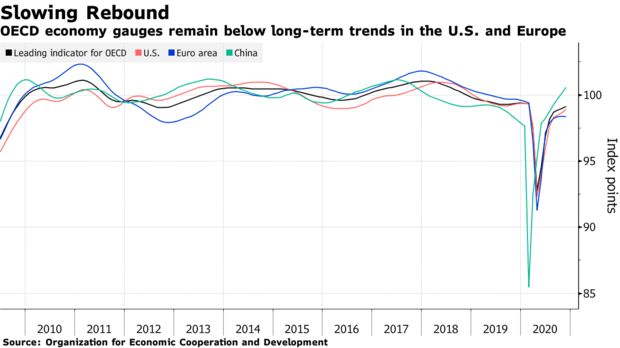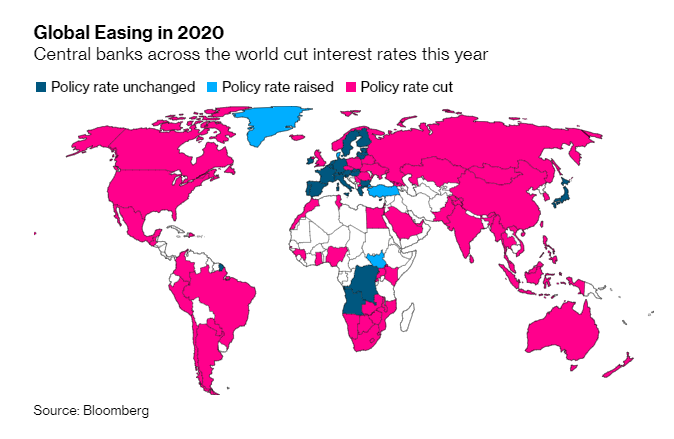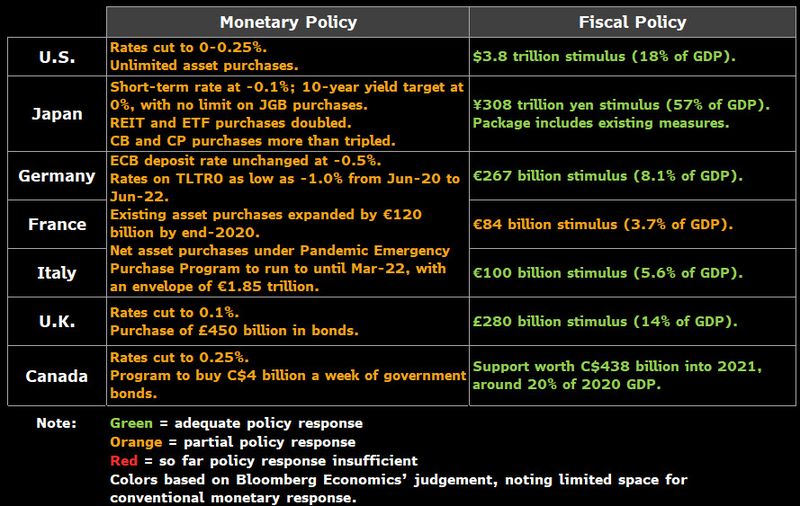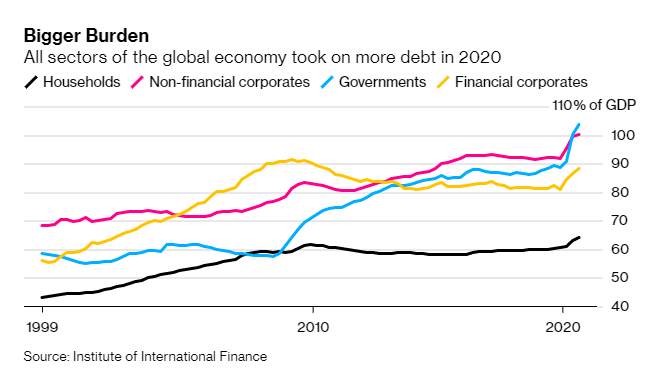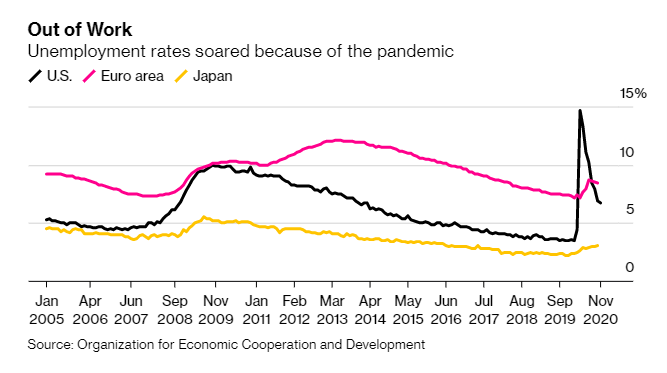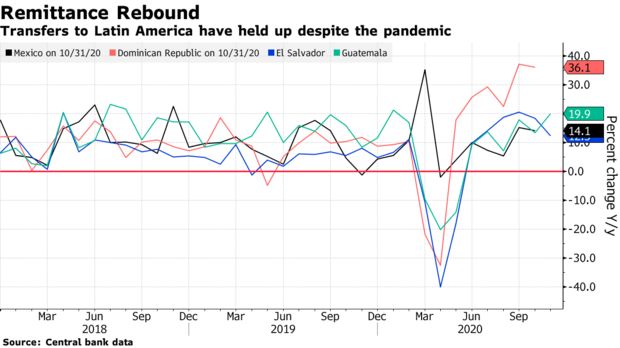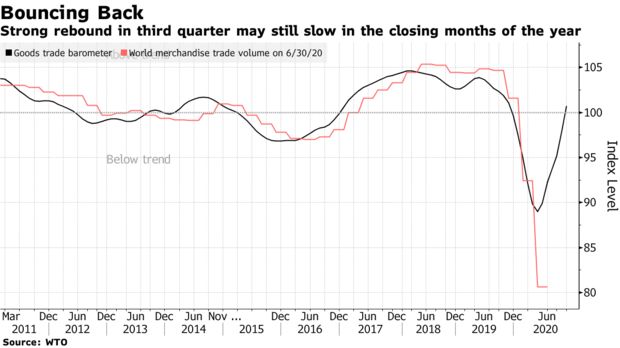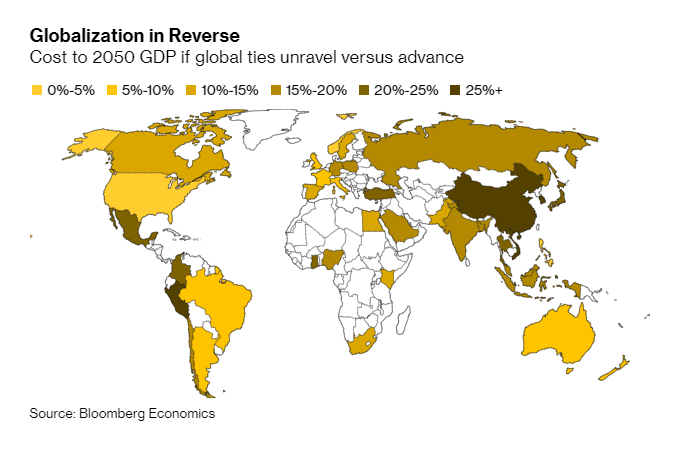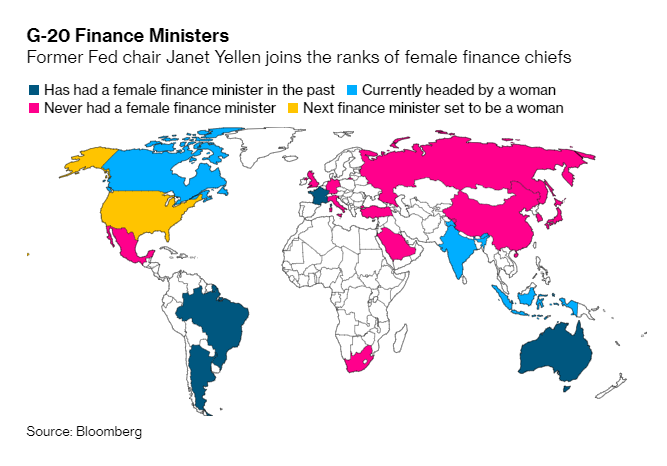Take a last look at a nightmare year for the world economy (THREAD) https://www.bloomberg.com/news/articles/2020-12-31/take-a-last-glimpse-at-a-nightmare-year-for-the-world-economy
The pace of recovery in the world’s biggest economies remains below pre-crisis levels https://www.bloomberg.com/news/articles/2020-12-31/take-a-last-glimpse-at-a-nightmare-year-for-the-world-economy
Central banks cut interest rates to new lows in a bid to loosen monetary conditions, or held them at ultra-loose levels below zero https://www.bloomberg.com/news/articles/2020-12-31/take-a-last-glimpse-at-a-nightmare-year-for-the-world-economy
Officials also unveiled new emergency programs, quantitative easing went into overdrive, and central banks hoovered up huge swathes of government bonds just as treasuries started issuing more debt to fund their fiscal responses to the crisis https://www.bloomberg.com/news/articles/2020-12-31/take-a-last-glimpse-at-a-nightmare-year-for-the-world-economy
The unprecedented spending by governments to cushion the fallout from lockdowns pushed up public borrowing throughout the world. For some countries, debt levels are now at the highest in decades https://www.bloomberg.com/news/articles/2020-12-31/take-a-last-glimpse-at-a-nightmare-year-for-the-world-economy
For all their efforts, governments couldn’t protect every job: unemployment rates have risen compared with the start of the year. With some sectors (tourism, airlines) facing long-term change, many jobs may be lost forever, raising the prospect of longer-term economic scarring
The crisis has proven a setback for righting inequality. Migrant workers bore a heavy burden as many of their jobs were vulnerable, and they often also faced greater health risks working on the front-lines of the pandemic. Still, remittances proved more resilient than expected
Despite fears in April of a deeper collapse in international trade flows than at any point in the postwar era, the decline in 2020 turned out broadly similar to that seen during the global financial crisis https://www.bloomberg.com/news/articles/2020-12-31/take-a-last-glimpse-at-a-nightmare-year-for-the-world-economy
Biden’s victory may also help trade, if he dials back the “America First” policy the U.S. pursued over the past 4 years. That might help avert an outright reversal in globalization, an outcome that Bloomberg Economics calculates would reduce global GDP by $31 trillion by 2050
For all the setbacks of 2020, progress occurred on one front at least. Women broke new ground in wielding the reins of economic power, with both the U.S. and Canada picking female finance ministers for the first time https://www.bloomberg.com/news/articles/2020-12-31/take-a-last-glimpse-at-a-nightmare-year-for-the-world-economy
Read the full story (with @craigstirling) here: https://www.bloomberg.com/news/articles/2020-12-31/take-a-last-glimpse-at-a-nightmare-year-for-the-world-economy

 Read on Twitter
Read on Twitter
